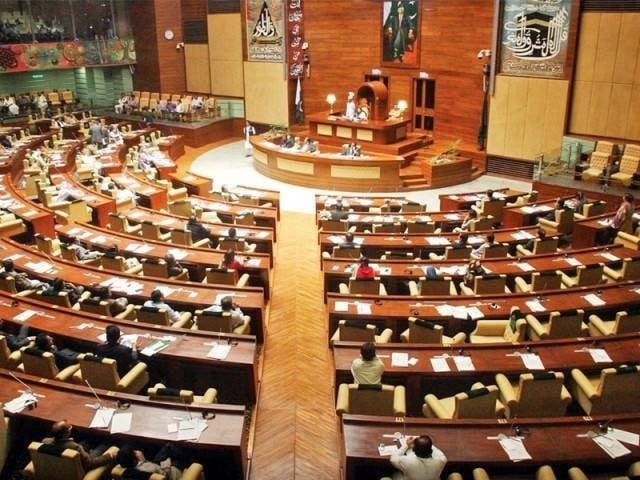Sindh moves bill mandating emergency care without legal formalities
Under the proposed law, hospitals will provide first-aid at government expense

PHOTO: ONLINE
The parents of Amal, Beenish and Umer, were also present in the assembly gallery to witness the proceedings. This was the second bill of this nature in last three years. The provincial government had already passed the ‘Sindh Injured Persons (Medical Aid) Bill 2014’ to treat all patients without waiting for police clearance, but this law could not see the light of day as the government failed to implement it.
Sharing the details of the new bill, Sindh Chief Minister Murad Ali Shah announced that they will penalise hospitals for not giving ‘first-aid’ to injured persons [due to firing, traffic accident, assault or any other cause].
Crying foul: Amid protests, Sindh amends LG law
Provisions of the bill
The bill states that it will be the duty of hospitals to provide compulsory medical treatment to injured persons on a priority basis. “No hospital or doctor shall demand any payment for providing compulsory medical treatment or other such medical assistance from victim, if he or she is unable to make payment. The cost of compulsory medical treatment shall be borne by the government,” the bill states, adding that the injured persons will be shifted to a government hospital immediately after their condition stabilises. “If he or she chooses, they may remain in the private hospital subject to paying the charges of the hospital,” one of the clauses of the bill reads.
After the bill is passed, it will be mandatory for hospitals to have and maintain at least two fully equipped and functioning ambulances stationed at the hospital premises at all times. “It shall be mandatory for all hospitals or any institution (enjoying status of a hospital) to have fully equipped and functional ambulances in case the injured person is to be shifted to another hospital,” the bill states, adding, “No police officer or any other officer of law enforcement agency shall interfere with the administrating of compulsory treatment or seek or interrogate an injured person while he or she is receiving compulsory medical treatment in a hospital.”
The bill also clearly states, “For purpose of investigation, the interrogation shall not take place until the doctor has allowed.”
Regarding shifting of an injured person to another hospital, the bill says, “The victim in emergency can be shifted to another hospital unless the hospital to which the injured was first brought is of the opinion that the compulsory medical treatment required cannot be provided due to inadequate medical facilities. Such reasons shall be recorded in writing by the hospital which has to provide transport accompanied by a doctor or a member of the nursing staff.
According to the bill, any person who brings an injured person to a hospital will not be harassed by any one including police and law enforcement agencies. “The hospital to which the victim is brought shall note down the helping person’s name, address and telephone number and obtain a copy of their national identity card or any other proof of identity.”
Sindh cabinet approves new prison reforms, terming previous as ‘punitive in nature’
Penalties and punishments
In this bill, penalty and punishment has been suggested for those who contravene or violate the provisions of this act. “People or hospitals violating this law will be punishable within imprisonment which may extend to three years or a fine imposed which shall not be less than Rs500,000, or both. The one who is in violation or contravention of this law shall be tried by the court on receipt of written complaints from Sindh Healthcare Commission or health department.” The bill further said that all offense under this act shall be non-cognisable and court at any stage of the proceedings may direct police to arrest the accused.
The bill also mentions that awareness campaigns will regularly be carried out by the health department to educate the public, medical professionals and police officers as well as law enforcement agencies.
Information adviser’s presser
After the bill was introduced, CM Shah suggested the Assembly Speaker Agha Siraj Durrani to form a special committee comprising treasury and opposition members for further feedback. A House committee comprising four members of government and three members from joint opposition was made, which will finalise the suggestions by Friday.
Speaking to media, Adviser to CM on Information Barrister Murtaza Wahab said that the law would be tabled in the Sindh Assembly on February 4 and said that the new legislation would go a long way providing treatment to injured persons without completing other formalities and would save human lives. The adviser said, “Provincial government is also contemplating to oversee the health commission with a view to achieve the desired results.”
Published in The Express Tribune, January 25th, 2019.



















COMMENTS
Comments are moderated and generally will be posted if they are on-topic and not abusive.
For more information, please see our Comments FAQ